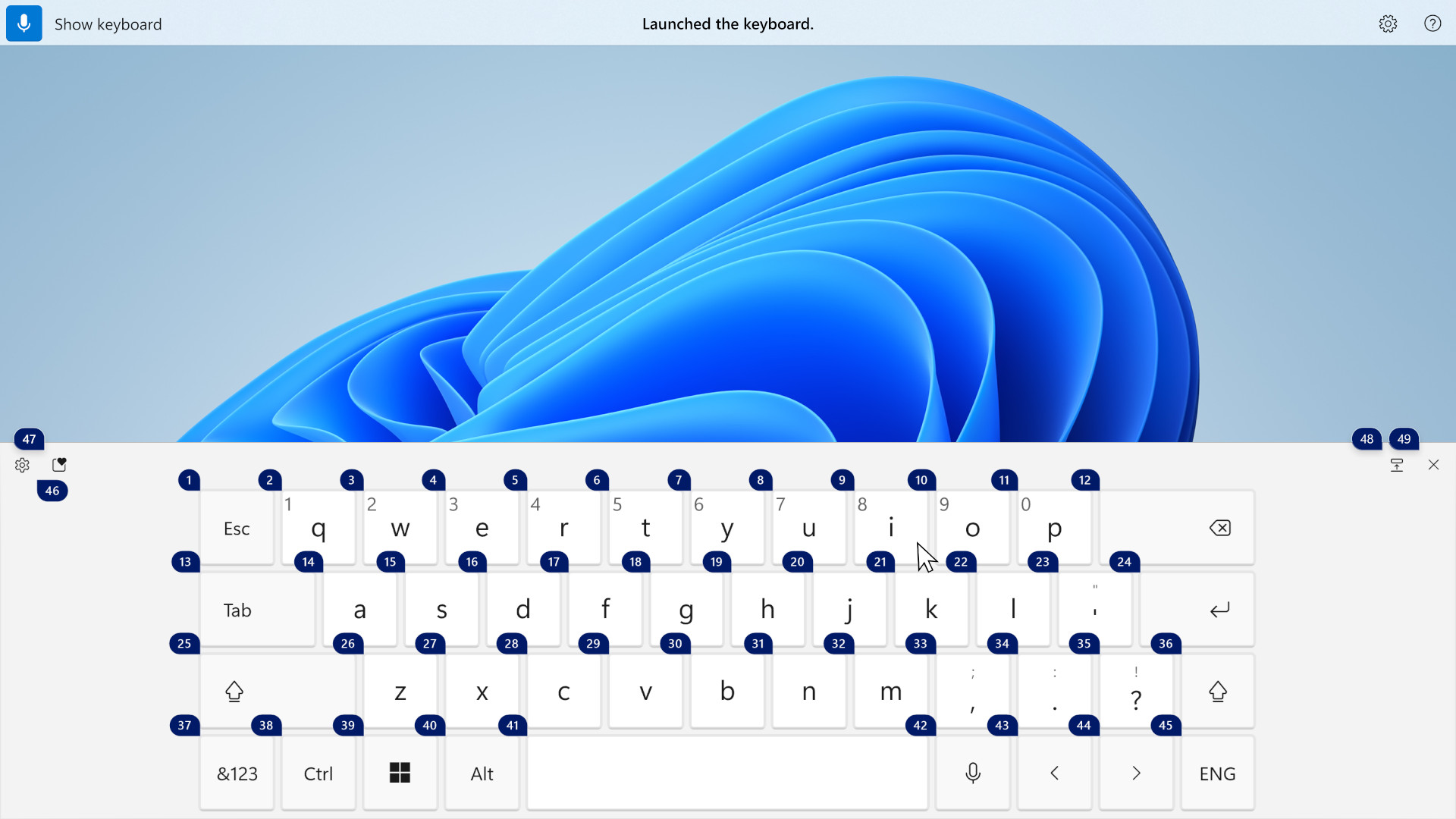Windows 11 now lets you type with your voice
New preview build of the OS has voice control for the virtual keyboard

Windows 11 has a new preview build which extends voice control capabilities to allow typing on the virtual keyboard.
Voice access is a feature which was introduced in testing for Windows 11 in December 2021, allowing for a range of different voice controls including the ability to operate mouse clicks with your voice – so adding the same functionality for the touch keyboard in this new build 22538 makes sense.
The way it works is simple: open the virtual keyboard with a command, and each key has a number on it. To press a key, you simply say “click 27” if you want number 27 (which is the letter ‘s’), for example. You can also easily access numbers, punctuation or emoji.
Microsoft further notes that it's starting to roll out the ability to download Speech Packs (from the Microsoft Store) for “device-based speech recognition that provides a better performance of transcription.”
Also present in this fresh preview release for the Dev Channel is some useful work with Alt-Tabbing and the Task View (the focus rectangle highlighting what’s selected now uses your chosen accent color), and a bunch of other minor changes and bug fixes as ever, all of which are listed in Microsoft’s blog post.
Analysis: Making Dragon a more fiery beast
As we’ve pointed out before, the Windows 11 voice access features are pretty much all drafted across from Nuance’s Dragon speech recognition app (Microsoft bought Nuance last year).
What’s interesting with the on-screen touch keyboard controls brought in with this preview build is that this is a new endeavor not seen in Dragon (at least, not in the version we use – namely Dragon Professional 15, which is the latest release). There are some ways of using your voice to control keys in Dragon 15, but they’re limited (to the likes of function keys, Tab and backspace).
Sign up for breaking news, reviews, opinion, top tech deals, and more.
We can expect Microsoft to further build on voice access as Windows 11 matures, and we’re keen to know what comes next. Further honing dictation accuracy – which is already admittedly good – would be great to see.
- Find out where to buy Windows 10
Darren is a freelancer writing news and features for TechRadar (and occasionally T3) across a broad range of computing topics including CPUs, GPUs, various other hardware, VPNs, antivirus and more. He has written about tech for the best part of three decades, and writes books in his spare time (his debut novel - 'I Know What You Did Last Supper' - was published by Hachette UK in 2013).